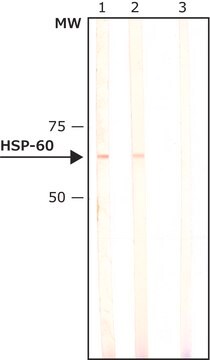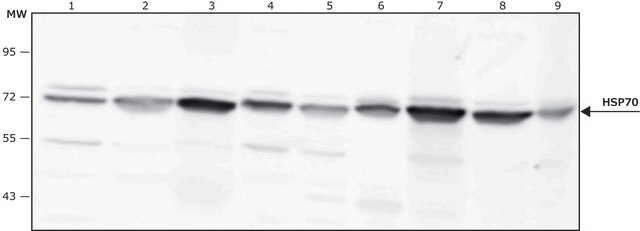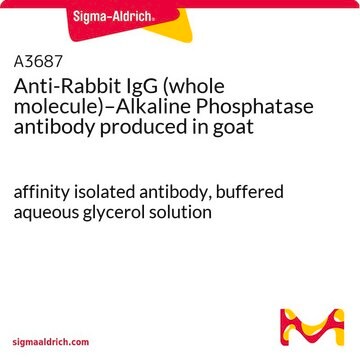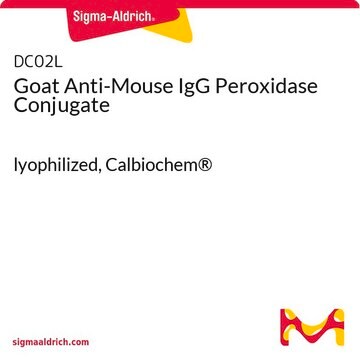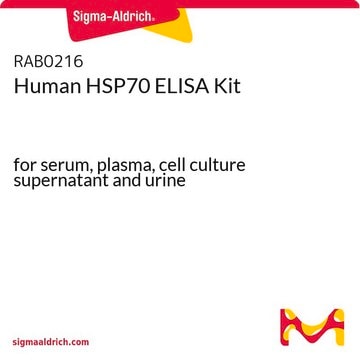H5147
Monoclonal Anti-Heat Shock Protein 70 antibody produced in mouse
clone BRM-22, ascites fluid
Sinónimos:
HSP70 Antibody - Monoclonal Anti-Heat Shock Protein 70 antibody produced in mouse, Hsp70 Antibody
About This Item
Productos recomendados
biological source
mouse
conjugate
unconjugated
antibody form
ascites fluid
antibody product type
primary antibodies
clone
BRM-22, monoclonal
mol wt
antigen 70 kDa
species reactivity
bovine, chicken, guinea pig, plant, Drosophila, rat, human, nematode, rabbit, hamster
technique(s)
electron microscopy: suitable
immunohistochemistry (frozen sections): suitable
indirect ELISA: suitable
microarray: suitable
western blot: 1:5,000 using bovine brain extract
isotype
IgG1
UniProt accession no.
shipped in
dry ice
storage temp.
−20°C
target post-translational modification
unmodified
Gene Information
human ... HSPA1A(3303) , HSPA1B(3304)
rat ... Hspa1a(24472) , Hspa1b(294254)
General description
Specificity
Immunogen
Application
Immunoprecipitation (1 paper)
Western Blotting (4 papers)
- enzyme-linked immunosorbent assay (ELISA)
- immunoblot
- dot blot
- immunocytochemistry
Biochem/physiol Actions
Other Notes
SAB4200714 Anti-Heat Shock Protein 70 (HSP70) antibody, Mouse monoclonal
clone BRM-22, purified from hybridoma cell culture
Disclaimer
Not finding the right product?
Try our Herramienta de selección de productos.
Optional
related product
Storage Class
10 - Combustible liquids
wgk_germany
WGK 2
flash_point_f
Not applicable
flash_point_c
Not applicable
Certificados de análisis (COA)
Busque Certificados de análisis (COA) introduciendo el número de lote del producto. Los números de lote se encuentran en la etiqueta del producto después de las palabras «Lot» o «Batch»
¿Ya tiene este producto?
Encuentre la documentación para los productos que ha comprado recientemente en la Biblioteca de documentos.
Los clientes también vieron
Nuestro equipo de científicos tiene experiencia en todas las áreas de investigación: Ciencias de la vida, Ciencia de los materiales, Síntesis química, Cromatografía, Analítica y muchas otras.
Póngase en contacto con el Servicio técnico
